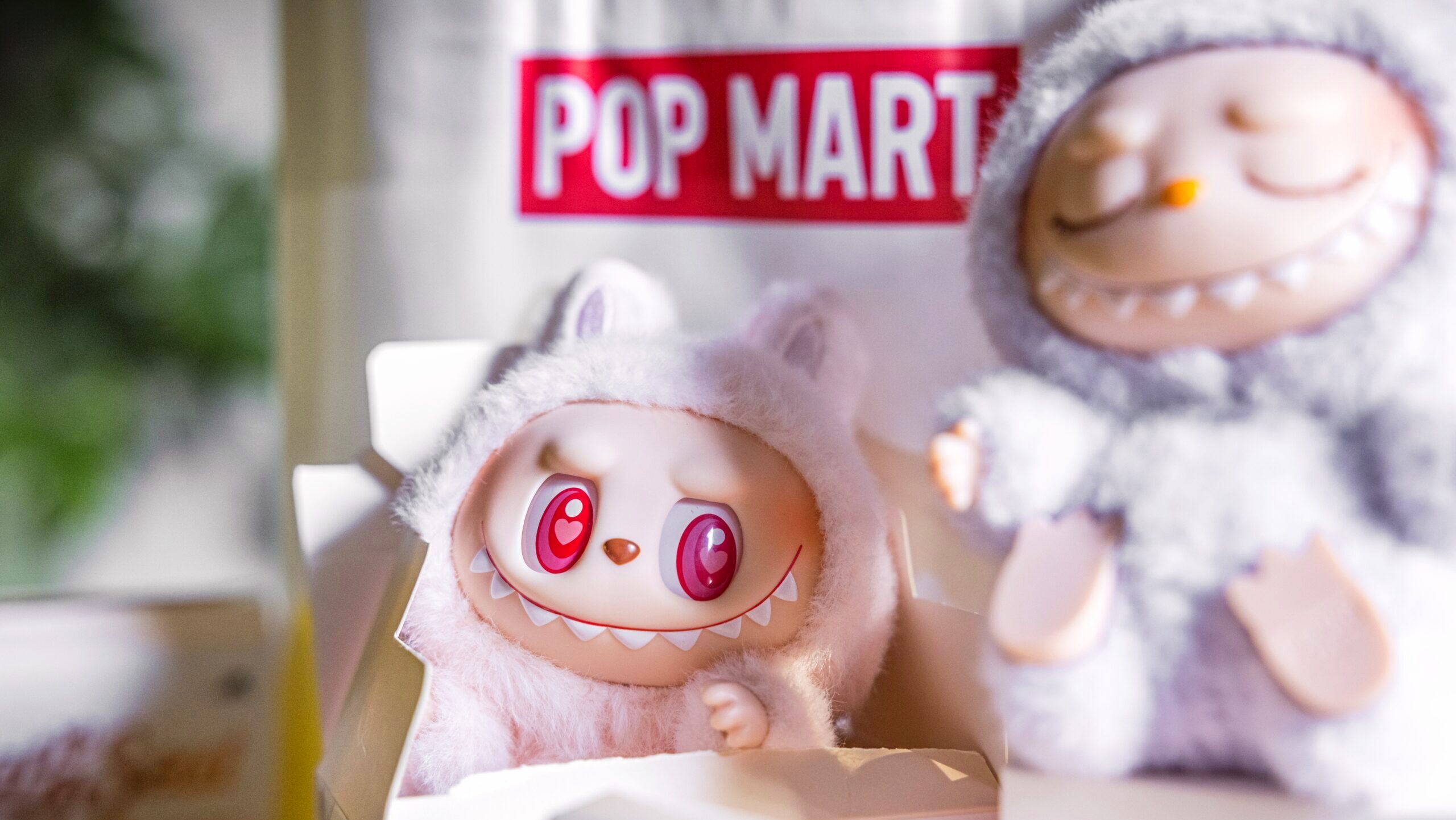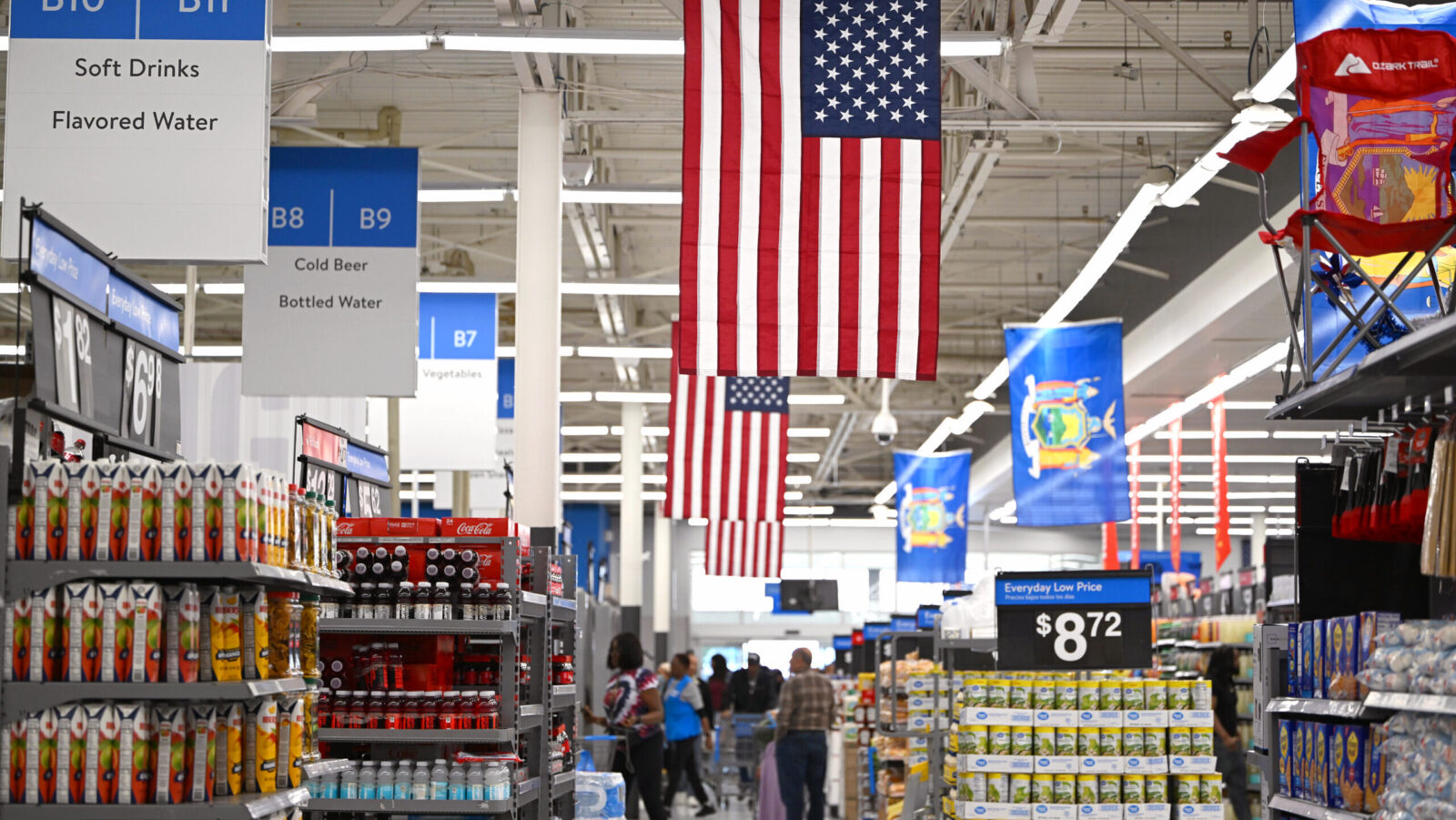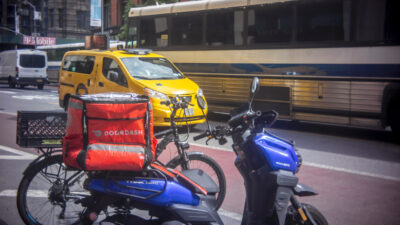Can Labubu Mania Last Forever?
The past is filled with trending toys and collectibles — Tamagotchis, Troll dolls, beanie babies. Are Labubu’s the latest fad?

Sign up for smart news, insights, and analysis on the biggest financial stories of the day.
So popular are Labubu stuffed toys and dolls, based on a toothily grinning folkloric creature created by Hong Kong children’s illustrator Kasing Lung, that they haven’t just moved units, they’ve moved markets.
That includes stock markets. Namely, the Hong Kong Stock Exchange, where shares in manufacturer Pop Mart have risen more than 250% this year, making it one of the world’s most valuable toymakers.
Then there’s the fashion market, where the toys are highly coveted because they double as bag charms. The range of tastemakers eager to show off their own plush doll accessories has ranged from football royalty (David Beckham) to pop royalty (Lady Gaga).
And, as the California video attests, there’s the black market, which, unfortunately, is drawn into the nexus of wild popularity and resulting scant availability, which translates to coveted loot ($7,000 worth in the La Puente case, according to the LA County Sheriff’s Department).
Pop Mart, though, has a golden triumph on its hands. The question now is whether it can stay golden: The past is filled with trending toys and collectibles — Tamagotchis, Troll dolls, Beanie Babies — that were once earnings mammoths and are now answers to pub trivia questions.
Turning Celebs into Fans
In case your pop culture knowledge was frozen in time by a pandemic commitment to read all the great novels or your idea of pop culture is prepping for that fantasy football draft later this afternoon, a catch-up.
Global phenomena don’t always happen overnight. For example, before they were superstars whose amplifiers were drowned out by the jet-engine-decibel screams of crazed fans, the Beatles spent years performing at small clubs in Hamburg and Liverpool. Just a hardworking band of working-class Scousers.
And before Labubu was the world’s most buzzed-about toy — with stores temporarily shut down in the Fab Four’s British homeland because fights broke out over them — it took a long and winding road to get to the top. A sequence of business decisions that could be characterized as lucky or brilliant or both, depending on who you ask, helped along the way.
It began in 2015, when Lung created the Labubu character, a furry, elven being with big, rabbit-like ears and sharp teeth. A central figure in his The Monsters series of illustrated books, Labubu wouldn’t become widely available as a toy until four years later. That’s when Lung teamed with Pop Mart, already an established toy giant in Asia, to produce its own dolls based on the character.
But that only takes us to 2019, a half-decade short of the world-shaking Labubu sensation. The toys were a modest success for years, enough to make some collectors take an interest but far from a phenomenon.
First, in 2023, Pop Mart began adding key rings to Labubu dolls. This would preface their breakthrough in 2024, which came thanks to a massively successful four-member pop group — no, not John, Paul, George and Ringo. Beginning in the spring of that year, Lisa and Rosé, two of the mononymously known members of Korean pop group Blackpink, were seen using Labubu dolls as bag and fashion accessories.
They have since made no secret of their love of the dolls on social media and in the press, handing Pop Mart a run of free publicity from one of the world’s most popular musical acts — the most subscribed-to act on YouTube, having overtaken Justin Bieber. (It’s also worth noting that the soft power of South Korea’s incredibly successful pop music industry helped confer soft power onto a Chinese toy brand.)
What a $3,000 Purse Still Needs
From there, the bag accessory trend spread like room-temperature butter, first across Asia and then to Europe and the Americas. Lizzo, Rihanna, Dua Lipa, Marc Jacobs, Cher and the NBA’s Dillon Brooks are among the scores of celebrities and influencers who have been spotted with the dolls accessorizing their bags, adding to the publicity and cachet. And, suddenly, the $30 toys were transformed into an essential status symbol for anyone with a $3,000 purse, broadening their market well beyond toy collectors and K-pop fans.
In addition to the keychain, an important element of Pop Mart’s production added a heap of additional publicity: the packaging. The toymaker has generally released Labubu dolls in so-called “blind boxes,” which means the purchaser doesn’t find out which exact color or type of character they purchased until after opening them. This created a social media phenomenon of unboxing videos, yielding more free publicity on TikTok and other platforms.
The craze is so significant that authorities on both sides have ended up with headaches. In June, Chinese authorities warned, through the ruling Communist Party’s official newspaper, that blind boxes could be causing “addiction” among youth and cautioned against “out-of-control consumption.” US authorities encountered a different problem, with the Consumer Product Safety Commission warning last week that some knock-off Labubu dolls that have cropped up in various marketplaces are so poorly made they could be dangerous for children.
Reasons to Smile
The Labubu character’s sharp-toothed grin was justified last week when Beijing-based Pop Mart reported results.
The company’s revenue outside mainland China rose over 1,100% to 5.6 billion yuan ($778 million) in the first six months of the year. That made up about 40% of the company’s 13.9 billion yuan ($1.9 billion) in total sales, up 200% year-over-year. Meanwhile, Pop Mart’s net profit rose an even greater 396% to 4.6 billion yuan ($640 million) in the first half of 2025. All of the figures exceeded forecasts and analysts’ estimates.
CEO Wang Ning told analysts on Tuesday that Pop Mart is slated to blow past its $2.8 billion revenue target this year, saying it should be “quite easy” to hit $4.2 billion.
Such is Pop Mart’s confidence in its growing US market that it has begun expanding its presence with physical stores stateside. Plans are to add three new locations every week until the end of the year.
Data from San Diego, one of the first cities to get a Pop Mart store in August 2024, bodes well. Weekly foot traffic at the location was up roughly 80% in late June compared with when it first opened, according to tracking by Placer.ai.
“They’ve done a really good job of selecting locations that align with the people that are getting really into these collectibles,” Elizabeth Lafontaine, a retail strategist and director of research at Placer.ai, said in an interview. “As Labubus were becoming more mainstream as a part of the cultural conversation, as Google searches started taking off, we really saw that correlate to traffic at the store location.”
She added that Pop Mart has capitalized on a revival in American malls as Gen Z consumers have adopted them as places to socialize: The San Diego location is at the city’s upscale Westfield UTC outdoor shopping mall.
“Traditionally, you wouldn’t think about a brand that’s on fire going into a traditional mall; that wouldn’t have been considered a winning formula maybe five to 10 years ago,” Lafontaine said. “But we’ve kind of seen that reversal of trend, and Pop Mart is capitalizing on that.”
Labubu’s continued viral popularity online has also allowed it to build out a growing sales channel directly on social media: Pop Mart’s US sales on TikTok Shop rose more than 10-fold year-over-year to $4.8 million in May 2025, according to data from Charm.io.
Just a Treat? Some analysts have attributed the popularity of Labubu dolls in part to the rise of “treatonomics,” or “little treat” culture, as some Gen Z TikTok users call it. It’s an economic hypothesis that presumes many young consumers — who view traditional milestones like home ownership and marriage as out of reach — will end up splurging on smaller indulgences like Taylor Swift concert tickets. It’s not dissimilar to the “lipstick effect,” which hypothesizes that spending on indulgences like lipstick increases during times of economic stress and uncertainty.
If Labubu is to remain a cash cow, Pop Mart will have to ensure it stays an indulgence of choice. The firm has wisely maintained their popularity so far by utilizing scarcity: It hasn’t flooded the market with oversupply, and the “blind box” sales model keeps customers coming back for Labubus they still covet.
All told, some 300 styles of the dolls have been launched since 2019, and Pop Mart has introduced special and limited editions timed with holidays and festivals or in partnerships with artists and fashion brands.
The combination of new editions and managed scarcity has ensured the dolls remain highly desired. On top of that, Pop Mart is moving to make the character more of an enduring cultural phenomenon: It has established a studio in China to work on film and television projects and opened a theme park based around its toys.
And then there’s the literally little development: Last week, Pop Mart teased a forthcoming series of mini-Labubu dolls intended as smartphone accessories, saying they could launch any day now. Which means the next time you read a newsletter on your morning commute, you could have a menacing, sharp-toothed creature staring at the screen along with you.
Of course, that could be just someone’s dog on the subway.











